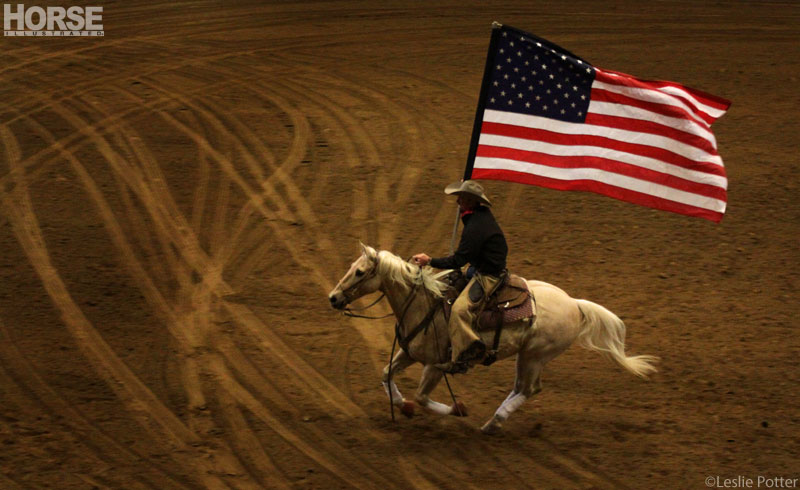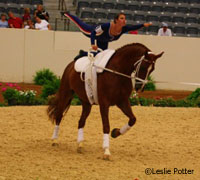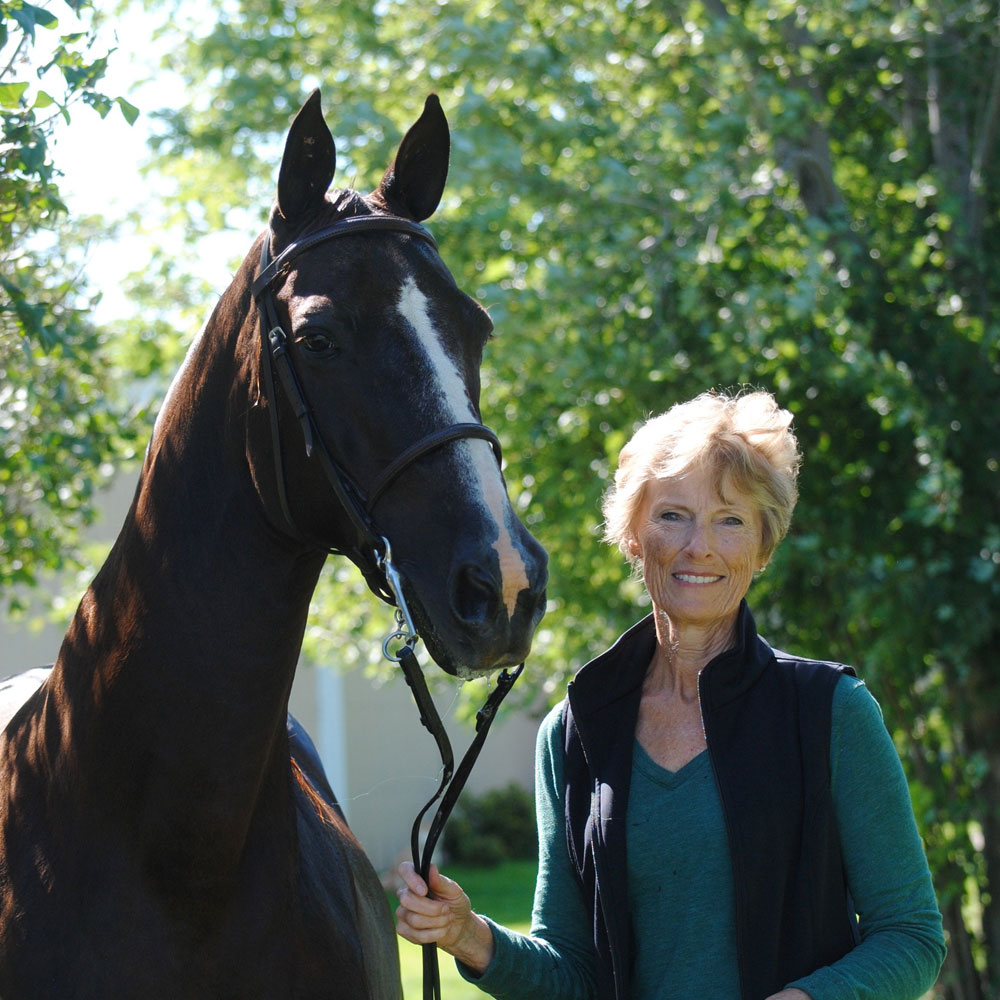November 11 is Veterans Day in the United States, a day set aside to recognize those who have served in the country’s armed forces. Originally designated Armistice Day and intended to honor veterans of World War I, the day was expanded in 1954 to thank all veterans for their service. Read on to learn more on how horses are helping veterans.

The horse community has found many ways to offer support to military families in recent years, whether fundraising for veterans services or providing mental, emotional and physical therapy for men and women injured during their service. In honor of Veterans Day, here are some of the ways horses are helping veterans.
PATH International Equine Service for Heroes
Professional Association of Therapeutic Horsemanship (PATH) International offers equine-assisted activities and therapies for veterans through its Equine Services for Heroes programs. PATH is just one of the programs where horses help veterans. Participants benefit from riding and interacting with horses under the guidance of qualified therapeutic horsemanship professionals. Find out more at PathIntl.org.
Operation Free Ride
Horses4Heroes of Nevada supports Operation Free Ride, a program that allows veterans and military families to ride for free. This is another program where horses are helping veterans. Participating facilities have offered everything from a ride in the arena to trail rides to cattle drives. Operation Free Ride programs are also held at horse shows and equestrian events including the Pinto World Show, Cheyenne Frontier Days and the Wrangler National Finals Rodeo. Find out more at Horses4Heroes.org.
EAGALA Military Services
The Equine Assisted Growth and Learning Association (EAGALA), a non-profit association for equine-assisted therapy professionals, provides a model for therapeutic treatments for veterans. They promote the use of horses in treatment for PTSD as a more active alternative to traditional talk therapies. EAGALA also offers a network of certified programs offering services for veterans. Find out more at EAGALA.org.





Thank all the vets, who have serviced our country.
Thank You!!
I am glad there are programs, with horses to help them/you.
That is wonderful!
Happy Veterans’ Day!
Couple of months ago, my husband and I was out eating and we saw a WW1 or 2 (didn’t want to stare at his hat) vet eating all alone. He really looked sad.
My husband bought a $10.00 gift card, went up to the vet, shook his hand, thanked him for his service, gave the gift card to him and said his next meal was on us! The old man just smiled and mouthed “thank you” across the dining room.
I hope the other diners saw that and someday do the same for our great veterans.